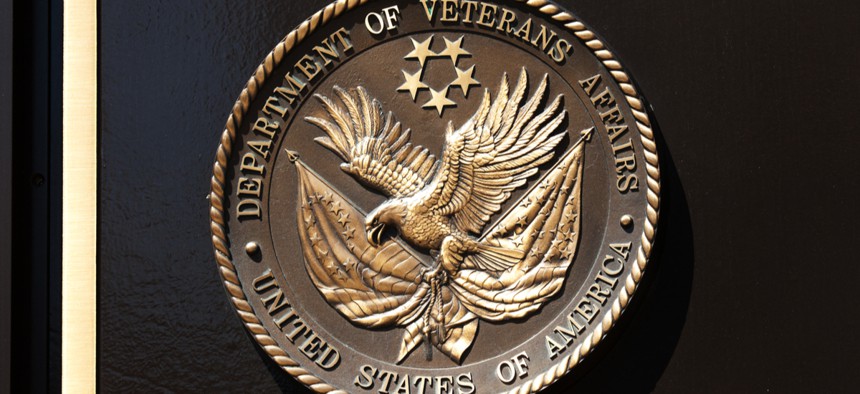VA Restarts Electronic Health Record Rollout

Mark Van Scyoc/Shutterstock
The initial deployment at a Spokane, Washington, medical center is now scheduled for October, while the new scheduling system will begin rolling out in August.
After an eight-month delay, the Veterans Affairs Department plans to restart its electronic health record and scheduling system overhaul in October, the agency announced Friday.
VA was ready to kick off two of three major, agencywide IT upgrades last spring but opted to delay those deployments first due to staff requests for additional capabilities and training, then due to the outbreak of the COVID-19 pandemic.
In February, VA officials told Congress the agency was halting the initial deployment of its EHR system at Mann-Grandstaff Medical Center in Spokane, Washington, originally planned for March 28. Melissa Glynn, VA assistant secretary for enterprise integration, told a House committee that staff at Mann-Grandstaff reported frustration over not being trained on the full Millennium system, as VA and the vendor—Cerner—started training on an unfinished product missing core functionality.
“Earlier this month, our clinicians in the field identified and communicated critical requirements and capabilities that must be available prior to user training,” Glynn testified in February. “The secretary listened to this feedback and postponed training so that we will bring the system closer to 100% complete prior to commencing training.”
Initially, VA chose to postpone the rollout to July. Then COVID-19 hit, forcing mass telework for many VA employees and triggering the agency’s lesser-known mission: to act as the nation’s backup health care network in times of crisis.
In April, VA Secretary Robert Wilkie announced another indefinite delay to the EHR rollout as the agency dealt with the pandemic.
“The worldwide pandemic created by the coronavirus disease has shifted the overall priorities of the Department of Veterans Affairs,” Wilkie wrote in a letter to House appropriators. “Our priority is the care of veterans and providing surge capabilities for civilian health care systems.”
But, on Friday, Wilkie announced the work would resume in October, and future rollouts would be moved up to ensure the project stayed on the original 10-year timeline.
“After a period of delay during which [VA medical centers] focused on their response to the COVID-19 pandemic, we are pleased to have our Electronic Health Record Modernization team resume activities with our facilities to move forward with a program that will transform VA and enhance veteran care,” he said. “As we implement the new EHR solution at these facilities, we will continue to prioritize the safety of our veterans and our staff by following guidelines to prevent the spread of COVID-19.”
Once the rollout at Mann-Grandstaff is complete, VA plans to begin rollouts at “select Midwest facilities that feature a balance of small, medium and large sites,” including medical centers in Ohio, Indiana, Kentucky and Michigan.
Simultaneously, VA’s Office of Electronic Health Record Modernization has been working with Cerner to roll out a new scheduling system, originally set to go live in April. The new system was set to be piloted at a network of medical centers in the Columbus, Ohio, area, including the Chalmers P. Wylie Ambulatory Care Center, which hosted the pilot for the last scheduling system upgrade.
Wilkie said that system is now scheduled to launch this month.
The agency is also in the midst of a third major IT overhaul: the Financial Management Business Transformation project, a $2.5 billion effort to deploy the Momentum financial management system developed by CGI. Wilkie did not provide any updates on that project’s progress, though its timeline extends through 2030.
NEXT STORY: DOD agrees to spectrum sharing deal






